Obituaries
This page contains recent obituaries for College Members and Honorary Fellows.
Obituaries from previous years are archived on our earlier obituaries page. The button below will let you find out how to submit an obituary.
2023
Obituary provided by Onikepe’s daughter Dr Elohor (Ellie) Ijete.
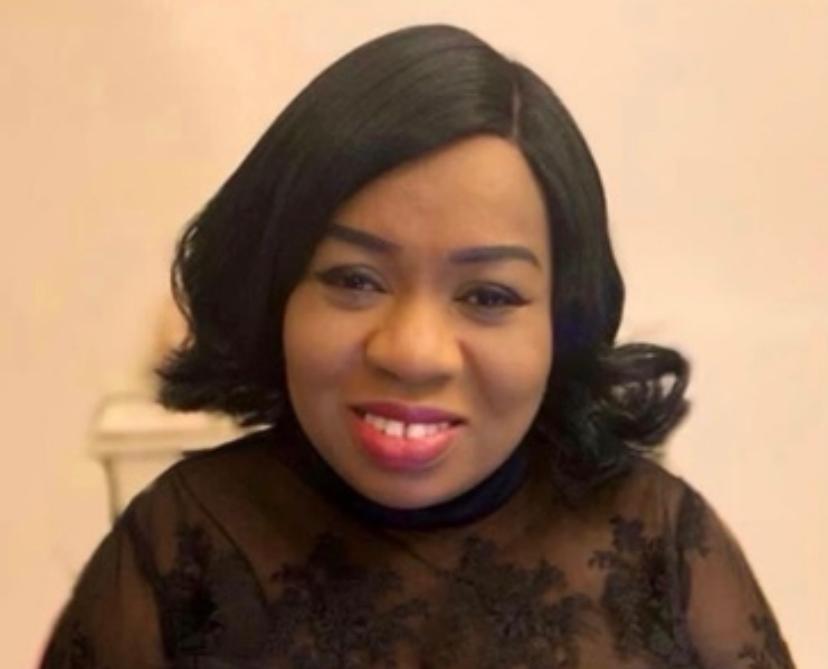
Dr Onikepe Ijete, (née Esuruoso) was born in 1967 at Chelsea, London to the late Professor Emeritus Oladele Folarin Esuruoso from Isale Igbein in Abeokuta, south west Nigeria and her late mother Mrs Gladys Omoleye Esuruoso (née Egerton-Shyngle) from Lagos Island, Nigeria.
The young Onike, who has 10 siblings, attended Abadina School, University of Ibadan and Federal Girls’ Government College Oyo, Nigeria before securing entry to the prestigious University of Ibadan to study Medicine. She married and then emigrated to the United Kingdom in 1992 and gave birth to her daughter Dr Elohor Ijete in 1993.
Onike Ijete faced the struggle to requalify by passing her PLAB licensing exams in the UK, while fulfilling her role as a mother and a wife. She handled this period of her life with grace and resilience and would often tell the story of her experiences to inspire others on a similar journey. After passing PLAB she completed her postgraduate core training in psychiatry at the East London and the City rotational training scheme, London UK.
Following this, she started work as a specialty doctor in forensic psychiatry at the North London Forensic Service in Barnet, Enfield and Haringey Mental Health NHS Foundation (BEH) Trust in 2008. Onike dutifully carved out a pivotal role in the rehabilitation service she worked in. In October 2018 she was featured in BEH Trust Matters for her outreach work on the importance of positive mental well-being amongst the African/African Caribbean community. As part of the Blue Nile House multidisciplinary team, Onike won the Specialist Service Improvement Champion Award at the BEH Celebrating Excellence Annual Awards 2018 and the Diamond Team Award in 2019.
As a black, female, internationally trained specialty doctor, who was a wheelchair user, she had lived experience of many intersectional issues, and used this experience and her unfailing commitment to advocate for race, gender, and disability equality and inclusion. She launched into a long campaign for reasonable adjustments as her mobility became more limited. Through that, she honed her public policy and public speaking skills as she campaigned for her own and other disabled people’s rights. This she did within the NHS and beyond.
Onike’s equalities work inspired her daughter and in 2015 they cofounded Inception, a free online peer group, to support Black, Asian and minority ethnic group secondary school students, medical students and doctors in the UK and internationally on their medical journey. In 2019, they were invited to the seat of the UK government at 10 Downing Street to discuss ways to increase the number of Black, Asian, and minority ethnic doctors working in the NHS and to help address health inequalities.
Onike focused heavily on her daughter’s welfare and education, and was rewarded by her daughter’s graduating with a First Class in Biochemistry in 2014 and as a medical doctor in 2020. She was able to celebrate her daughter’s achievement with family and friends in August 2023, just over three months before her passing. With her motherly duties lightened as her daughter Dr Elohor Ijete became a woman in her own right, Onike began to stretch her wings; between 2019 and 2023, she travelled to France three times, the USA, Czech Republic, Nigeria and Jamaica as well as the length and breadth of Britain. In all her travels she constantly challenged the inadequate provision of accessible provision for disabled people and used her lived experience as a mother, black woman, internationally trained doctor, wheelchair user and patient to inform her own clinical practice.
Dr Onike Ijete worked closely with the Royal College of Psychiatrists (RCPsych) to promote greater equity for disabled psychiatrists. In October 2020, she was invited to contribute a video clip for the RCPsych second online conference on mental health and the African and African Caribbean diaspora. In December 2021, she was celebrated by the Royal College of Psychiatrists on International Day of Persons with Disabilities, through a blog post and an interview where she spoke on disability as strength. She was also featured in RCPsych Insight Magazine. In February 2022, her photograph featured as one of the Faces of the Royal College of Psychiatrists and is still displayed till today. She was also part of the RCPsych Disability Task and Finish group which was focused on equity and inclusion for psychiatrists with disabilities. A week before her tragic death she had just delivered a brainstorming presentation, combining her journey as a disabled black woman with cutting-edge insights on focusing on enablement rather than the impairment.
In her spare time, Onike enjoyed listening to music, (and was often more current than her daughter) watching films and travelling. Onike’s life celebrated the rich heritage of Egba* women as campaigners for justice. A devout Christian, she regularly attended Global Restoration Church, London from 1996 and formed a lasting bond with her pastor and other congregants. She was the treasurer of the church for many years and gave back continuously to the church that supported her over the years. She folded her heritage, faith and professionalism into her lived experience to create a torch to light the way to a more inclusive future. She will be sorely missed by her family, social community, workplace and profession. While her body rests in peace from its labours, may her works and name live on and continue to inspire.
* The Egba people are a subgroup of the Yoruba people, an ethnic group of western Nigeria, well known for campaigning for justice and holding leadership positions.
-wilkinson.jpg?sfvrsn=9716352c_1)
Obituary by Dr Marco Piero Piccinelli, colleague and friend.
On 15 January 2023 Professor Greg Wilkinson suddenly died and I lost a mentor in psychiatry and, most of all, a good friend.
I met Greg for the first time in summer 1989 at the General Practice Research Unit at the Institute of Psychiatry in London, where he occupied the position of senior registrar after his graduation in medicine at Edinburgh University and his training in psychiatry at the Maudsley Hospital in London. Greg introduced me into the Institute, never taking the lift and walking quickly along the corridors and from floor to floor. I was a young inexperienced doctor, recently graduated from university and on the verge of starting his PhD in Psychiatric Sciences, and possibly got a long lasting imprinting by Greg. Still today, it happens that my colleagues and patients point to my fast pace throughout the hospital. Among other things, Greg led me to the secretary distributing discounted or free of charge tickets for cultural events to students. In this way, I absorbed and combined psychiatry and art, which I later discovered was a Greg’s attitude to life.
Between April and November 1992 I regularly attended the Academic Department of Psychiatry at the Royal London Hospital in London, where Greg held the position of Professor of Psychiatry since January that year, after being the first Director of the Subdepartment of Psyhological Medicine of University of Wales College of Medicine in Denbigh for the previous two years. At that time, Greg was very busy building his new department and, thus, I was mainly working by myself during the day. After leaving the hospital late in the afternoon, he drove me to his place where we spent a couple of hours working together. I was sitting behind him in front of the computer and looked at him while he was elaborating what I had written during the day, cutting down sentences, changing logical sequences, creating new connections, suggesting new topics. In this way, I had the valuable chance of making personal experience of his knowledge in psychiatry and talent in writing, which he put at the service of the British Journal of Psychiatry when he became editor in the period 1993-2003. Years later, I read about Fernanda Pivano doing the same with Ernest Hemingway in Cuba and remaining fascinated. Greg was amused when I told him that he was my own Hemingway whose iceberg principle he applied in writing, leaving visible only few and clear aspects of a topic and underwater most of the collected material to give the iceberg a proper stability and not overburden the reader.
In order to increase the chance of working together and make my stays abroad fruitful, Greg often offered me to spend weekends with his family in Wales and this habit persisted after he became Professor of Liaison Psychiatry at the Royal Liverpool University Hospital, where I got an MPhil in Psychiatry with him as my tutor. In this way, our personal room, including at the beginning mainly psychiatric topics, research methods, statistical analyses and academic papers (plus art), was gradually filled with disparate elements and experiences from everyday life, thanks to Greg’s multifaceted curiosity and tastes, and became stimulating and lively, allowing our spirit to grow alongside our professional knowledge.
I am truly grateful for this to Greg, his wife Christine and their four children, Adam, Victoria, Alexander and Dominic, and this is the legacy of our everlasting friendship.
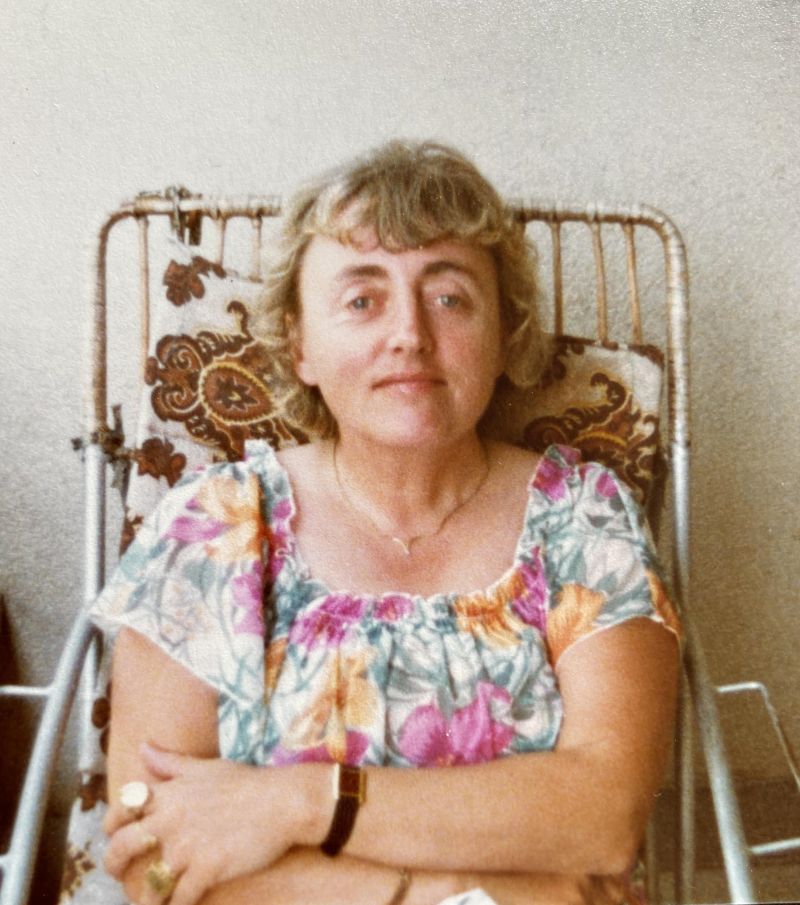 Obituary by Matthew Evans, Brenda's son.
Obituary by Matthew Evans, Brenda's son.
My mum, Dr Brenda Lintner, who has died aged 92, was a psychiatrist, a Fellow of both the Royal College of Psychiatrists and the Royal College of Edinburgh, a former political activist, and a lover of opera and the arts.
Born in Birkenhead, an only child, to working-class parents, James Bird, a docker, and Eveline (nee Pye), a housewife, she taught herself to read before primary school and then passed the 11-plus, before attending Wirral grammar school for girls.
She became the first girl from her school to be accepted into medical school and was one of only three women in a class of more than 100 medical students at Liverpool University. She supported her studies through a variety of factory jobs.
After qualification, she worked in a number of house and surgical jobs, including at Liverpool Royal Infirmary, but found it all too impersonal and chose psychiatry instead, a decision she never regretted. There followed jobs as a Senior House Officer at Littlemore Hospital, Oxford, and then a Registrar at Barrow Hospital, Bristol.
In her youth, Brenda was an active member of the Workers Revolutionary party. Later she joined the Labour Party and wrote articles on medicine and politics for publications such as Socialist Review.
In 1961 offered a job at the Gracie Square Hospital in New York, she faced several hours of questioning by US immigration officials on arrival about her political activities. Her sponsor, Dr Lother Kalinowsky, a prominent Jewish psychiatrist who had fled Germany in the 1930s, persuaded them that this woman, all five-foot-two of her, was not in fact a grave threat to American society.
She stayed for two years, leaving when the need to check people’s credit and insurance status before treating them became too much.
Back in the UK she worked at Cane Hill Hospital, and was a senior lecturer in medicine at Birmingham and Leeds universities, before another working adventure as a visiting lecturer in Calgary and Nova Scotia, Canada.
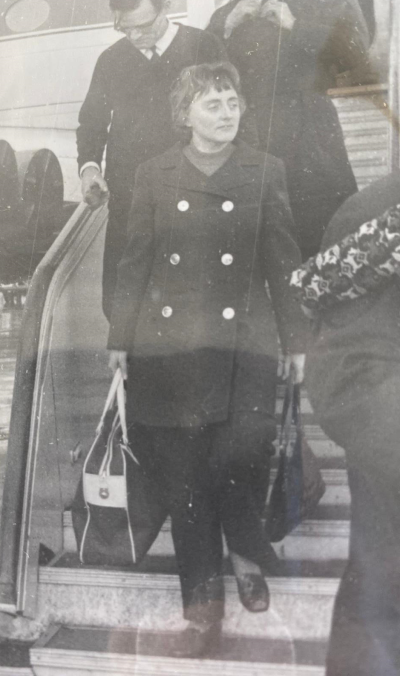
Brenda became a Consultant Psychiatrist to Runwell and the Southend Group of Hospitals in late 1960s, and for several years worked at East Ham Memorial which was at the time a particular responsibility of Runwell Hospital.
She was particularly interested in adolescent problems and community treatment, setting up several community clinics, including on Canvey Island. She was also Involved in the training of junior doctors, GPs, and volunteers for organisations such as CRUSE and the Samaritans,
After my father died, Brenda raised me as a single parent before finding happiness again some years later with Jiri Lintner, a retired GP, whom she had known since they had worked together on Canvey. They married in 1986 and moved to Dorset.
Although Brenda stopped working as a hospital consultant, she continued to be active and enjoyed travelling, combining trips to China, South Africa, Easter Island, and the Antarctic with other passions such as opera and Chinese food. She completed a degree at the Open University and helped set up SANE’s advice line.
Brenda was also an active member of the Mental Health Review Tribunals for over 15 years and wrote two books. The first was for families of people with schizophrenia. The second, Living with Teenagers (difficult ones, was the sub-text), was dedicated to me.
In her last years, she moved to Brighton. She is survived by me and her three granddaughters, Alice, Izzie, and Jess.
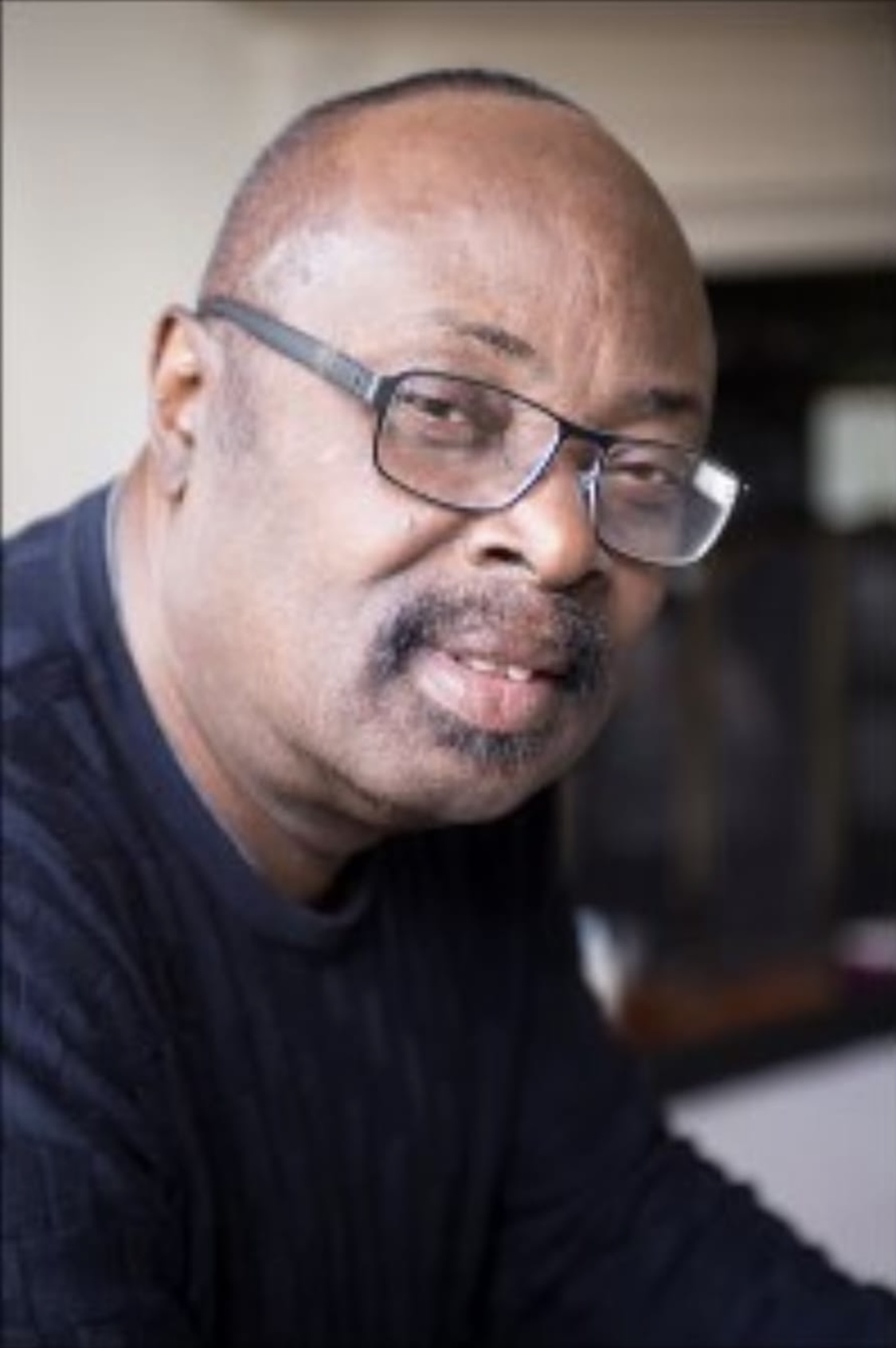 Obituary by Dr Sharon Belmo, Charles' daughter.
Obituary by Dr Sharon Belmo, Charles' daughter.
It is with great sadness that we announce the passing of Dr Charles Aryiku, retired Consultant Psychiatrist and former Honorary Consulate General of Ghana, who left this world on 19 March 2023. He was 71 years of age.
He will be remembered for his provision of mental health services across Scotland and his dedication to building relationships between Ghana and the UK with his consular work.
His Excellency, Dr Charles Aryiku completed his medical training at Ghana Medical school in 1975. He worked as a house officer in Accra Psychiatric Hospital, the first of three psychiatric hospitals in Ghana, moving on to Pantang hospital, Accra.
At the mere age of five, Charles fondly remembered his homeland of Ghana gaining independence from UK in 1957. It did however remain within the Commonwealth and therefore benefited from Commonwealth scholarships.
In 1979, Charles was awarded a three-year Commonwealth scholarship to undergo post-graduate training in psychiatry at the University of Edinburgh. He underwent his training at Royal Edinburgh, Morningside and Dingleton hospitals.
In 1982, having successfully obtained MRCPsych, Charles was encouraged to apply for a consultant post which he attained. Charles worked as a consultant at Bellsdyke Hospital, Falkirk, followed by Lennox Castle Hospital, Glasgow.
Charles would also do locums across Scotland and England to support his growing family. After locuming at Ailsa hospital, Ayr, Charles secured a substantive post. In 1990, The Aryiku family moved from Stirling to Ayr, where they would remain.
Charles practiced general adult psychiatry and had specialist interests in PTSD, depressive illness and other affective disorders. He was also an accredited clinical hypnotherapist which he greatly utilised in his treatment of phobias and anxiety disorders, as well as practicing on his family!
While working at Ailsa, Charles also became a prison consultant psychiatrist serving prisons across Scotland in addition to Dungavel Immigration Removal Centre. He was also a second-opinion psychiatrist for Dumfries and Galloway. Charles was a board member of the Hansel foundation, Ayrshire, and BMI Carrick Glen hospital, where he also had a private practice.
At Ailsa, he received Dundee Medical School students for their psychiatric rotations as well as having an “Agony Uncle” service for healthcare workers. Charles retired from Ailsa in 2011, only to pursue a new career as the first and only appointed Honorary Consulate of Ghana. Appointed in 2009, Charles brought his beloved homeland of Ghana to Ayr, setting up office to issue Visa’s to those wishing to travel to Ghana.
Over the years, Charles promoted socio-cultural, economic, educational and trade links between Ghana and Scotland whilst protecting the interests of all Ghanaians in Scotland. He was an inspiration to many Ghanaians, often being invited to speak at events, and was very well known for his motivational speeches.
Charles’ life was a testament to his strength, resilience, and unwavering spirit. He faced many challenges throughout his life, but never lost faith in the power of unity, kindness and love. He touched countless lives with his empathy, compassion and generosity. His legacy will continue to inspire and uplift those who were fortunate enough to have known him.
Charles is survived by his wife, Cynthia, his three children; Charles, Sharon and Cheryl, and his five grandchildren; Jessica, Christelle, Cruz, Andre and Celine, who will miss him deeply.
The Funeral service will take place at St Columba Church (Ayr, KA7 2SL) on Monday 17 April 2023 at 3pm followed by a reception at The Western House Hotel (Ayr, KA8 0HA) to celebrate his life.
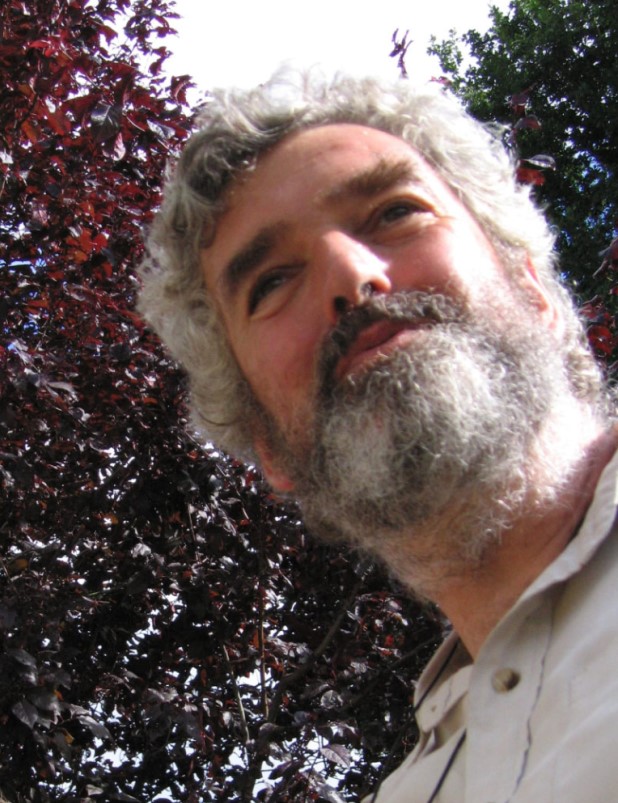
Obituary by Samuel Harvey, Peter's nephew.
Dr Peter John Cooper born 1953, son of Marie and Paul, passed away on 28th January 2023, at the age of 69.
Born in the valleys of South Wales, he went on to study medicine at Birmingham University in 1971. Specialising in Psychiatry, his first registrar post was in Kidderminster in 1984, where he later became a consultant in 1990. He lamented that the pressures of his general psychiatric work left him little time for his main passion, psychotherapy.
He will be remembered by the Forensic Faculty and the special interest group with which he was involved. Peter loved teaching, mentoring and teaching, and will do doubt make a huge impact on his trainees that went on to use their trade today.
In the late 1990s, he returned to his roots in Wales where he worked at Bronllys Hospital in Powys. Soon after, he married his wife, Susan, who also worked in mental health. She survives him, along with his stepdaughter, Claire, in Brecon.
Always full of energy, his interests were broad and eclectic. He was a passionate photographer, capable mountaineer, and for many years participated in the parliamentary artillery in the English Civil War re-enactment society, the Sealed Knot.
A consummate host, Peter loved putting on a feast for his family and friends, sharing his love of good wine, cheese, and gastronomy. No gardening project was too big for him; he loved horticulture and experimented with many different gardening styles. His other big love was collecting pottery including from artists Bernard leech and Lucy Ree.
He was passionate about psychiatry, but the profession and dwindling resources took their toll. He managed to enjoy at least a decade of early retirement before his passing. He absorbed knowledge like a sponge, amassing a small library at his home in Cwm Brook, including history, fiction, and poetry, and would often recite Dylan Thomas or Joseph Conrad after a fine single malt.
In retirement, the learning would not cease. He learned Spanish and travelled in northern Spain, and he returned to college to formalise one of his key interests with a first-class honours degree in photography in 2022.
Peter died satisfied, having lived a full life, with the experiences he had and the people he had known. He will be remembered for his great sense of humour, (sometimes caustic) wit, and strong moral compass.
For condolences and funeral arrangements, please contact his nephew, Samuel Harvey, at samuel.harvey@nhs.net.
2022
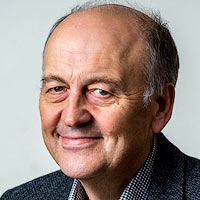 Obituary by Dr Ruth Deborah Edwards, a former colleague.
Obituary by Dr Ruth Deborah Edwards, a former colleague.
On 30 October 2022 Dr Matthew Sargeant died peacefully, and for Welsh psychiatry that rarely applicable line “stop all the clocks” seemed very apt.
Matthew was such a valued colleague and character, that it seemed unimaginable that he should be gone. It was typical that he worked to the end, joining meetings from his hospital bed, his final MHRT report submitted less than a week before he died. As a result, although he was frank about his illness and its likely outcome we all somehow felt this was a hypothetical rather than a likely, let alone imminent occurrence.
Born in 1954, as a child he struggled with a variant of dyslexia, failed his 11-plus and was advised to become a cook. He then worked as a nursing assistant. Thankfully an exceptional teacher discerned his intellect and potential and he eventually went up to Selwyn College, Cambridge. He maintained that his nursing assistant experience was invaluable.
Matthew's first post in psychiatry in the early '80s, was in Devon. He then moved to Wales, working with Professor McGuffin before becoming a consultant in Merthyr. In 1995/6 Matthew helped commission a psychiatric unit in New Brunswick.
Returning to the UK he worked in Nottinghamshire before settling in west Wales in 1997. Subsequently, he held numerous roles, including Associate Medical Director, and most recently was a rehabilitation and forensic consultant..
Passionately devoted to medical education he served as an Honorary Senior Lecturer for Mental Health for Hywel Dda and Cardiff and Swansea Universities, and was awarded an Outstanding Achievement Award by the BMA in 2017.
Attending his deeply referenced lectures risked considerable book bills. He always enticed one to learn more, but more importantly, to be curious and to understand more deeply. His work was characterised by painstaking clinical exactitude, attention to detail, nuanced understanding and a deep compassion for his patients. He was a passionate advocate of parity of esteem for those with mental and neurodevelopmental disorders.
Organisationally, Matthew was something of a superhero, over the years filling most gaps which appeared, flying across the countryside to meet his legion of commitments. My own first contact with him, after a job enquiry, was a return phone call at 10pm, a first indication that where work was concerned he did not really observe any sort of normal diurnal rhythm.
Matthew was profoundly intelligent and reflective. Like poetry, he could sometimes “communicate… before understood” and it was not unusual to grasp long afterwards how pertinent and wise it was that he was trying to say. Matthew was also a longstanding and much-valued member of the Mental Health Review Tribunal for Wales, renowned for encyclopaedic case law knowledge. He was also the Lead Second Opinion Approved Doctor for Wales and a stalwart trustee of the Clinical Human Factors Group.
Matthew was kind-hearted, approachable, generous with his knowledge and time, indefatigable, unstoppable, with preternatural clinical intuition. He was also an intensely private man. He truly personified the College motto, “Let wisdom guide”. Our sincere condolences go to his family.
Obituary by RCPsych, Dr Trudi Seneviratne, Peter Thompson and Margaret's family.
The Royal College of Psychiatrists was very sad to learn of the death of Dr Margaret Oates, 79, who passed away in December 2022. Dr Oates was a perinatal psychiatrist whose approach to service provision for women and their babies was revolutionary. She is survived by her four children and ten grandchildren.
Margaret grew up in Wallasey, in Wirral, and went on to study and train in Liverpool, Cardiff, Edinburgh, the West Indies and Manchester. She eventually settled down in Nottingham where she raised her four children as a single parent, often working through the night after they had gone to bed. Inspired by his dedicated mum, her son Jeremy decided he wanted to be a doctor when he was just five years old and now works as a surgeon.
In 1974, Margaret opened the Nottingham Mother and Baby Unit, which provided rapid and effective care to mothers who were struggling with mental illness. Although it was not the first such unit in the UK, the practices that were developed there quickly became the template for all others. More than 35 years later, Homerton Hospital, in Hackney, paid tribute to Margaret’s efforts by naming its own mother and baby unit after her as well.
The UK’s Confidential Enquiries into Maternal Deaths began taking contributions from Dr Oates in 1997. Her advice and recommendations significantly improved the care that women received across maternity services, primary care and psychiatry.
Dr Oates set up RCPsych’s Perinatal Special Interest Group and it was due to her efforts that it became one of the College’s 13 key faculties. Today, the faculty promotes the provision of services for mothers with mental health problems, educates trainees and develops research into the field.
Margaret also established the College’s Perinatal Quality Network in 2007. It became the default accreditation network for services across the UK and improved the quality of care provided by giving them access to guidance on best practise. She later became the chair of the College’s Combined Accreditation Committee and oversaw the quality assurances process for all 28 quality networks.
Margaret also campaigned to improve perinatal services abroad and spent a year helping rural communities in Jamaica in the early 1970s. She was a founding member of the Marcé Society, which is now a worldwide family of researchers and clinicians who are dedicated to the understanding and treatment of perinatal mental illness. Her expertise and experience were heavily sought after, and she advised governments in Singapore and New Zealand on service development.
The College recognised Margaret’s outstanding career in 2013 when she was presented with an RCPsych Lifetime Achievement Award. She was also awarded an OBE in the Queen’s honours in 2009. Her work has touched the lives of thousands of women with mental illness and will continue to inspire future psychiatrists and doctors for many years to come.
Margaret’s family issued the following tribute to her:
Indomitable, passionate and driven. The same characteristics that made her the force she was in medicine she brought to family life too. As a single mother in the 1980s, she quite literally burnt the candle at both ends but put the same passion into her family as she did to her work life, and was utterly committed to both.
All of those who knew her knew how she chain-smoked when she worked, and she often worked long into the night, paperwork spread over the dining room table, Dictaphone in one hand (mastering IT came much later in life!), cigarette in the other. But that intense work always came after family time, normally after a home-cooked meal.
When grandchildren came along, she became Granny Maggie and launched into that role with the same gusto she did everything else in her life. Her grandchildren absolutely adored their Granny Maggie and she adored them too. Grandchildren certainly had the effect of moderating her language though, which was known to be choice at times. She loved nothing more than having all of her children and grandchildren around the dining table, mass catering for countless children and thoroughly loving the ensuing carnage and chaos.
In her downtime she loved travelling, but most of all she loved reading. Her passion was foreign detective novels; if there was a book involving a pained Scandinavian detective with a past, or a charismatic Sicilian policeman, you can guarantee she would have read it. An early convert to a Kindle, her e-reader soon became her most cherished item and she rarely if ever left the house without it. Few lasted long though before she managed to wear them out with excessive use.
As a family, we had some idea of her professional achievements but nothing could prepare us for the affection and appreciation that has been shown over the past few weeks. The comments from her colleagues and friends have been lovely, particularly from those whom she taught. She prided herself in her role as an educator and it is clear from many of the tributes that she left an indelible mark on a wide variety of professionals and had an influence on many careers.
The most touching tributes though have been the ones we have received from strangers; patients and their families she cared for who have approached us, all of whom wanting to share their appreciation and gratitude.
Her passing leaves a huge hole in our family, but she will always be Granny Maggie to us.
Dr Trudi Seneviratne, Registrar of the Royal College of Psychiatrists, reflected on Margaret's life:
Margaret was an incredible person. She stood steadfast in her mission to ensure women were cared for properly when they had babies.
A woman’s mental health was her priority, whether the pregnancy had been planned or not. She took the importance of maternal suicide to a global stage, thus supporting generations of women in the assessment of risk not just for now but for generations to come.
I first met Margaret in 1997, as part of a transcultural study in postnatal depression led by Professor Channi Kumar - she was hosting the Nottingham site in the UK and I in London - we discussed many things including risk across cultures and populations within the UK and across the world. Although the study itself was attempting to harmonise research methods across cultures, we had and still do have a long way to go. Margaret was a brilliant clinician, manager and educator who fuelled research.
She loved her family and not a moment went by without her speaking of her children or grandchildren - of whom she was immensely proud. She quietly achieved an enormous amount for the Royal College of Psychiatrists, both setting up the Perinatal Quality Network – for which we are indebted - and having oversight of all the clinical networks (CCQI) the College runs. She liked to work and worked non-stop. Despite her tough tortoise-like exterior, she was the softest, kindest and most humble person and I will really miss her. We will be eternally grateful for all you gave us. May you rest in eternal peace, Margaret.
Peter Thompson, who worked with Margaret for 15 years, also commented:
Margaret continued to work with the CCQI up to her death and at her last accreditation committee meeting in November 2022, she was still able to provide incredible insight and shrewd observations about quality in mental health services.
Margaret retired from clinical practice not long after the establishment of the Quality Network for Perinatal Mental Health Services in 2007. The fact that she continued to chair the network’s advisory group and give up her time to support the network after her retirement shows the commitment that she had to ensuring that mothers and their babies get high-quality mental health care.
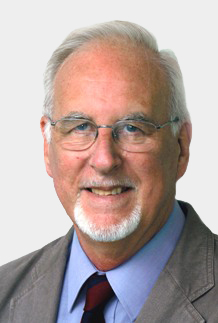 Obituary by daughter Dr Rachel Stores.
Obituary by daughter Dr Rachel Stores.
Gregory Stores, Professor of Developmental Neuropsychiatry at the University of Oxford, who contributed greatly to the understanding of epilepsy and sleep disorders, passed away on 21st December 2022. Professor Stores became a member of the College in 1970 and retired in 2004.
Born in 1938 and raised in Stockport by parents William and Marion, Greg went to school at St Bede’s College where he became Head Boy and spent many happy hours of his youth in Stockport Library. His first degree was in Psychology, after which he went on to study Medicine at the University of Manchester. He not only excelled in his studies but also had a passion for athletics, competing in throwing events including the hammer up to County, Northern Counties and British Universities representative levels.
After graduating in 1967 he worked in various hospitals across the North of England before moving to Oxford. Greg completed a Visiting Fellowship at Yale University Department of Neurology in 1974, and became a Consultant in 1976, working at the Park Hospital in Headington in both sleep disorder and epilepsy services for patients of all ages referred from throughout the United Kingdom, and was Director for the Oxford Regional Paediatric EEG Service. During this period his research grant total was in the region of £1m principally in support of studies in children’s sleep disorders. One of his most significant contributions to the diagnosis of childhood epilepsy was his introduction of ambulatory EEG in real life settings. This technique has become the worldwide standard for research and clinical investigation of epilepsy and sleep disorders in patients of all ages.
He was elected as Fellow of both the Royal College of Psychiatrists (1981) and the Royal College of Physicians (1983). He became Professor of Developmental Neuropsychiatry and Fellow of Linacre College at the University of Oxford in 1999 due to his extensive research and publications in epilepsy and sleep disorders.
Greg taught undergraduate and postgraduate groups in medicine and allied disciplines. He both organised and was invited to be a keynote speaker at conferences around the world due to his international reputation and significant contribution in the field. He also made national and international television and radio appearances and press contributions. He authored many highly cited academic journal articles, and was an author and editor of several books including “A Clinical Guide to Sleep Disorders in Children and Adolescents” and “Sleep and its Disorders in Children and Adolescents with a Neurodevelopmental Disorder”, and wrote chapters in many more.
After retiring from clinical work, Greg continued to publish and was a Visiting Lecturer at Warwick Medical School and University College London’s Institute of Child Health. He completed a Postgraduate Certificate in History of Medicine at Oxford Brookes University and enjoyed often presenting at local history groups on such topics as “Maladies of Medieval Monks”, “The History and Folklore of European Witchcraft and Attempts to Combat its Influence” and “Charles Dickens as Social Reformer and Medical Observer”.
Having lived in Dorchester on Thames for almost 40 years he had a fond relationship with the Abbey where he was a steward, regularly taking visiting groups on historical tours of the building. Greg has always had an interest in 17th century and earlier oak furniture, carvings and related items and had an eye for quality pieces as evidenced by his fine collection. He will be greatly missed by his wife, Christina, four children, Adrian, Rebecca, Rachel and Alasdair, and four grandchildren, Beth, Abby, Kaya and Erin.
 Written with input from Professor Sims' wife Dr Ruth Sims and son Dr David Sims.
Written with input from Professor Sims' wife Dr Ruth Sims and son Dr David Sims.
The Royal College of Psychiatrists is saddened to announce that Professor Andrew Sims has passed away at the age of 84. Andrew was the President of the Royal College of Psychiatrists from 1990 to 1993, a Professor of Psychiatry at the University of Leeds for over 20 years and wrote 15 books. He leaves behind a wife, four children and 12 grandchildren.
Andrew grew up in Exeter before going on to study medicine at Emmanuel College, Cambridge and Westminster Medical School. He also did postgraduate training in psychiatry at the University of Manchester, and in Birmingham and later earned an MD qualification from the University of Cambridge in 1974 for his thesis on prognosis in neurotic disorders.
His wife of 58 years, Ruth, was also a psychiatrist. Two of their children went on to study medicine but talk about psychiatry was often banned from the dinner table, so as not to bore the rest of the family. In his free time, he enjoyed walking in the hills, gardening and watching rugby or cricket.
Professor Sims served as Dean of the Royal College of Psychiatrists from 1987 to 1990 before becoming President. During this time his mission was to improve standards in psychiatry both in the UK and globally. His book Symptoms in the Mind has become a standard text in the field, three editions of it were eventually published and it was translated into Spanish, Italian, Portuguese, Korean and Japanese. Ruth said he was happy to be in a position where he could campaign for change but that he always remained a humble man.
When he was not campaigning for mental health, Andrew was often studying and writing about psychiatry and faith, he was Chair and a long-standing member of the RC Psych Spirituality Special Interest Group. In 2009 he co-edited Spirituality and Psychiatry, which argues, among other things, the importance of the faith of the patient and the need to take a spiritual history. He authored Is Faith Delusion? in the same year and later published Mad or God? in 2018.
This passion for psychiatry was something Andrew took with him everywhere he went. He made it his life’s work to train psychiatrists around the world, and educated people in India, Pakistan, Nepal, Sri Lanka, Singapore, South Africa, Zambia and the Czech Republic. Ruth remembered on one occasion he was thrilled to see people in Nepal downloading and studying his book Symptoms in the Mind without permission.
Throughout his distinguished career he received honorary Fellowships of the Royal College of Psychiatrists, the College of Physicians and Surgeons of Pakistan, the College of Medicine of South Africa and of the Association of European Psychiatrists. He was also a life member of the Pakistan Psychiatric Society, and a Doctor of Medicine from the Archbishop of Canterbury.
Ruth shared the following tribute to her husband:
“Andrew chose to study psychiatry because he believed it was his calling. He was always full of energy, cheerfulness and compassion. For us as a family, his great sense of humour meant life was always fun with him. But above all we remember his deep love for all of us.”
Andrew’s son David said: “Dad's approach to understanding Psychiatry was based in a lifelong habit of observation. It was also shown in conversation through walks in areas of countryside as well as the day each year when we watched England at the test, either Headingley or more recently Edgbaston. It's apparent from meeting psychiatrists from around the world that his respect for them and his encouragement to show respect to our patients came through in all his interactions.
“He lived his beliefs in many ways. He was very keen to be part of the conversation that explained psychiatry to those of faith as well as advocating for faith to be understood as part of psychiatric practice. It is fitting that this is reflected in his own family not just with a psychiatrist and minister.”
Professor Sims’ family would welcome any members of the College who would like to attend his memorial service taking place on Friday 17 March.
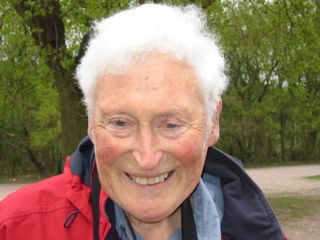 Obituary by son Allan Todd and colleague Mark Hughson.
Obituary by son Allan Todd and colleague Mark Hughson.
Dr Norman Todd died on 2 January 2022, just a few weeks before his 94th birthday. Born to two schoolteachers in 1928, Norman Todd grew up in Paisley, where his father was a member of the senior staff at Paisley Grammar School. Norman’s studies at school were mostly focused on Classics; he won several prizes for Greek. However, the university system of the time allowed him to enter Glasgow University to study Medicine, making up on a lot of sciences in his first year.
After graduation Norman’s earliest medical practice experience was in the Army during his National Service. As an officer in the Royal Army Medical Corps he served on a troopship ferrying servicemen and their families to Hong Kong and in the military hospital in Münster, Germany. When he left the Army he spent some time in General Practice before specialising in Psychiatry, a decision which also led to him meeting his wife-to-be, Susanne Friedländer, while they were both working at the psychiatric hospital in Cambridge. He became, by examination, a Member of the Royal College of Physicians of Edinburgh.
After returning to Scotland he was appointed consultant psychiatrist at Leverndale Hospital, Glasgow and later became deputy physician superintendent, before retiring in 1990. He published several papers on forensic psychiatry, on the effects of abortion legislation and on changing patterns of hospital admissions in schizophrenia. However, he was renowned for his dedication to his patients, to whom he showed great kindness.
Some of the patients he looked after had very challenging illnesses, but he thought most carefully about them all and had much success in stabilising their illnesses. Although quiet spoken, he could be refreshingly stubborn if he thought the care of his patients was being compromised in any way. An excellent colleague, he was elected a Fellow both of the Royal College of Physicians and the Royal College of Psychiatrists.
Norman had a great love of music which he shared with Susanne, and they were frequent attendees at concerts both in Glasgow and further abroad, travelling to Orkney, Austria and Finland to attend opera festivals. Norman was an enthusiastic hillwalker and climber from his University days until arthritis made days on the hills impractical in his 80s. Even after that he and Susanne had many holidays in their campervan and he attended reunions of the Glasgow University Mountaineering Club until the spring of 2020. He was rightly proud of having received a “Certificate of Compleation”, with its archaic spelling, for having climbed all 282 of Scotland’s Munros (summits over 3000 feet) as well as having climbed Mt Kenya and Mt Kilimanjaro.
Norman and Susanne remained married until his beloved Susie’s death from motor neurone disease in February 2020. Norman’s declining health and mobility then meant that he needed more care than was possible at home, and he died in Kirk Lane Care Home in Livingston, Scotland after a short illness. He is survived by his four children (Julie, Allan, Malcolm, and Nigel), 10 grandchildren and one step-great-granddaughter.

Obituary by David Atkinson.
Dr Rosemary Wyn Atkinson (nee Williams) FRCPsych Rosemary, born 3 March 1943, died in Portugal on 20 May 2022, where she had been living with her husband David since 2015.
Since retiring from the NHS she worked as a specialist, producing expert reports for courts in child care cases where drugs and alcohol was involved. Her reports where so valued that by the time she retired from this work she was producing three reports per week and was booked six months in advance.
The company she and her husband had formed 'Atkinson Lewis' is still in business today with other experts producing reports.
Knowledge of her death brought many emails of condolence to David but the following from Cath Pyves, in his personal view best sums up Rosemary
"Rosemary’s sharp intuitive intelligence was the first thing I noticed in your conservatory when you both interviewed me. I have always been thankful that she saw something in me and took me under her wing. She was the best teacher and mentor I ever had and in my work I often apply the ‘what would Rosemary say’ rule.
"Her kindness to others and willingness to share her knowledge and advice was appreciated by all. I loved seeing her relaxed and holding court when I came to Portugal, as you know she was such good company."
 Obituary by friend and colleague, Baroness Elaine Murphy.
Obituary by friend and colleague, Baroness Elaine Murphy.
Dr Zoe Slattery MB BS, FRCPsych, consultant psychiatrist Goodmayes Hospital London and later West Suffolk Hospital, Bury St Edmunds Suffolk, has died age 98. MBBS 1948. DCH 1951. MRCPsych 1974. FRCPsych 1985.
There can be few consultants who decide at the age of 60, when most people are retiring, to take on the challenge of establishing a brand new, community-based, old age psychiatry service. Zoe did just that, with enthusiasm and eventual success amid local scepticism.
Born in Clapham, of Irish Protestant parents, her father Dr Carlisle (Joe) Kelly was a GP, having settled in England from Drogheda. Her mother, Zoe came from Mohill, Leitrim. Zoe and her sister Katie grew up in the Isle of Wight.
Zoe studied medicine during the Second World War at the Royal Free Hospital School of Medicine for Women, where in 1943 a V3 rocket fell while they were in a lecture. She wrote “suddenly a slow snowstorm of bits of masonry and thick dust seemed to come from the window behind us. One student was seriously injured and the tea lady cut by flying glass. The enduring memory is of dirt. We were absolutely filthy with dust in our hair and on our clothes. We spent a day picking glass out of the bodies in the long room (anatomy dissection room).”
The medical school then moved to Exeter where she completed her MBBS in 1948. Her early years were spent at Stoke Mandeville, then a ‘Ministry of Pensions’ hospital run for veterans, where she met Dr John Slattery, whom she married in 1952. During their early years, while John pursued his career in public health, Zoe took a break from medicine to raise four children and took a Diploma in Child Health working as a local authority clinical medical officer.
Her experience of working in a child guidance clinic in Essex led her in 1971 to seek psychiatric training and she was fortunate to be recruited by Professor Tom Arie at Goodmayes Hospital, who was influential in enthusing trainees, mostly women from unconventional backgrounds, into a career in psychiatry. She qualified MRCPsych 1974 and in 1985 became FRCPsych.
After returning to the Royal Free Hospital as a senior registrar, and brief spells at other hospitals, Zoe became a consultant at Goodmayes Hospital from 1977-1984, providing a community based old age psychiatry service for the catchment areas of Redbridge and Newham. She also worked with the Health Advisory Service, participating in the work that led to the important government policy document, The Rising Tide (1982).
During this period, she was seconded for a year to a newly developed psychogeriatric service in Dunedin, New Zealand (set up by her Goodmayes consultant colleague, Dr Elizabeth Taws). After John’s retirement, they moved from east London to the idyllic village of Walsham-le-Willows in Suffolk where John created a perfect garden and Zoe embarked on a new consultant post.
After retirement Zoe continued until 1995 as a Second Opinion Doctor for patients detained under the Mental Health Act. After John’s death she moved to Alresford in Hampshire and her final years were dedicated to friends and her four children, Zoe, Jim, Edward and Juliet, her eight grandchildren, and two great-grandchildren.
Zoe Slattery was the ideal professional colleague, an impressively perspicacious and astute clinician, a generous friend and amusing companion. Good medicine she felt was about being modestly aware of one’s fallibility and storing up contacts and sources of wisdom to tap into, being curious and kind enough to pursue what others have dismissed as a lost cause. Zoe was a role model like no other and I learnt more at her side, than any sitting at the feet of famous experts could have taught me.
She is survived by her children, grandchildren and great-grandchildren
 Obituary by colleagues Dr A. K. Jha, Dr S. Shora and Dr M. Walker.
Obituary by colleagues Dr A. K. Jha, Dr S. Shora and Dr M. Walker.
Dr Kaushik Mukhopadhaya born 31 May 1965, died 5 March 2022.
Kaushik graduated from the North Bengal Medical College, India in 1989. The same year he married Neelanjana, a consultant and Clinical Director of the Obstetrics and Gynaecology service. He came to the UK in 1998.
He started his career in psychiatry in 1999 and moved to Hertfordshire as a specialist registrar in old age psychiatry in 2002. He was appointed as a substantive consultant old age psychiatrist in Hertfordshire Partnership University NHS Foundation Trust in 2005.
He was spotted early in his career as a rising star and became a Joint Head of Service (Clinical Director at the time) after only a year as a consultant in 2009. As a Joint Head of Service, Kaushik ran the acute services for the whole trust and pioneered the concept of medical managers working outside their clinical specialty.
Kaushik had an extraordinary ability to connect with people, including his patients. He became popular among both medical and non-medical colleagues because of his kind, compassionate and problem-solving attitude.
In 2015, Kaushik was appointed as Medical Director of HPFT, where he served until 2018. He had exceptional leadership qualities and focused on improving clinical care, reducing referrals between teams within the various services and releasing professional time for direct patient care.
He later became Chair of the Medical Staff Committee. He was an excellent teacher and trainer and travelled up to Nepal to run dementia training workshops for Nepalese doctors just before the Covid-19 pandemic in 2020. He worked relentlessly through the pandemic to ensure that all his patients were safe and that his colleagues were supported.
Outside medicine, Kaushik’s interests included cars and cricket. He was a talented wicketkeeper and a qualified car mechanic. Kaushik and Neelanjana are blessed with two sons, Akash and Abhilash, both settled successfully. He will be missed for his kindness, compassion, sense of humour and conversational grace

